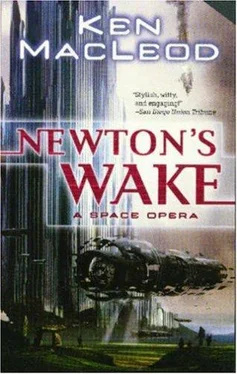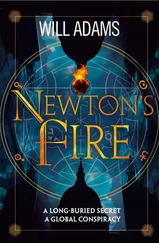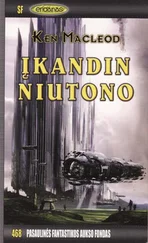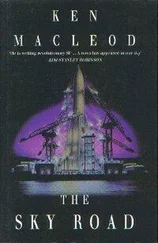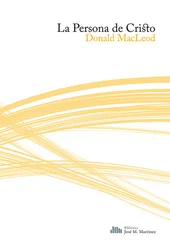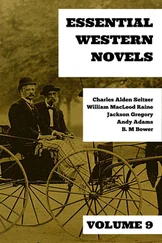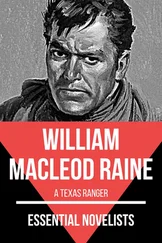He dropped the cigarette butt and ground it out underfoot. ‘We’ll get them all back,’ he said.
‘The truth is,’ Calder admitted, ‘I’m a little bit nervous myself.’
Lucinda walked back up the column, sending people back to the cabs.
‘Time to go,’ she said.
As soon as the cab doors were shut she turned on the engine. The sled lifted a metre off the ground. She toggled the controls to autopilot, tabbed a few icons on the dash. As the vehicle moved forward she slid open the rear hatch of the cab. In the trailer the elongated ovoid of the search engine gleamed like a leaden slug.
‘Everybody in,’ she said. ‘After you, gentlemen.’
‘Won’t it look suspicious, the cab being empty?’
She jerked a thumb at the forward and side screens. ‘Got recordings running on the windows.’
They made their way down the narrow gap between the search engine’s tracks and the walls to the end of the twenty-metre-long trailer. The rear door of the search engine swung up and they climbed in. The soldiers, now armoured and helmeted, clamped at waist, limbs, shoulders, and head by safety restraints, sat in facing rows along the vehicle like robot paratroopers. In this vehicle they were all combat archaeologists; the Returners and Brezhnevists were distributed between the other five, in combined squads. Lucinda led the way up the aisle to the forward-facing shell seats of the command console. The two men sat down beside her just as they had in the cab. The screen in front showed the same view as from the cab, but wider and with far more enhancements and interpretation features. At the moment the vehicle was skimming across the loch at Camas Longart where the bridge had been. It turned west alongside the northern shore of Loch Alsh, between the grey sea now and then glimpsed to the left, and to the right the steep ochre-stained sides of mountains hundreds of metres high, their bare tops lost in the low cloud.
‘OK, guys,’ Lucinda said. ‘Time to download a copy before the shooting starts.’ She swung two bracket-mounted backup helmets above their heads, and down to cover their eyes. Blackness. There was a tickle behind the bridge of the nose, a sparkle behind the eyes, then light again and she was folding the devices back into their niches. She checked the copydeck, the small device on which the recordings were stored. ‘It’s done.’
Winter wished he’d been better prepared: that he’d had some encouraging thought in his mind for the copy to carry forward if it was thrown into action. These copies weren’t for backups—all involved other than the DK lot had backed up the previous night, to secure servers in the old castle’s vaults. These were for going in to the virtual reality within the target artifact, the fastness, if a viable such environment could be detected by the search engine.
‘You ever done that yourself?’ Winter asked.
She gave him a look. ‘Not bloody likely. That’s what thralls are for.’
After a few kilometres the hills were behind them and the sea right beside them. Just ahead, the mouth of the Balmacara River bled red down the shore.
‘This is it,’ said Lucinda. She reached for the controls that overrode the autopilot and swung the sled hard right, off the remains of the road and on to an even fainter track by the stream, and then they were going, foot down and throttle forward, hell for leather northward up the Balmacara slopes and into the rust desert above Duirinish.

T
he fastness at Carn Tollaidh, Tully Carn as the Knights called it, was a complicated black mass spread across a square kilometre of hillside like a lava flow that had taken on an almost organic, coralline shape as it had solidified. It faced out across the sea toward Skye and the small islands. It utterly dominated and—by way of the iron oxide dust that its presence inexplicably attracted or generated—devastated the once notably scenic promontory between Loch Carron and Loch Alsh. Originally an insignificant node in the global communications system—an automated telephone exchange or microwave relay mast—the ganglion of circuitry at Tully Carn had begun its metastasis into its present gross form moments after the first US military AI to achieve independence had burned through its containment firewalls and set off on its rampage through the Internet.
That it retained the uploaded copies of some at least of those who had died on the fronts defined by the Atlantic coast of Scotland was a tradition founded on reports and rumours little more substantiated than ghost stories: strange antique figures on television screens within a thirty-kilometre radius of the thing (such apparitions never recorded at the time, and recounted long afterwards); anomalous messages on the fetch-mails of distant descendants (invariably inadvertently erased); dust devils in human shape glimpsed in the ochre desert on windless days (never photographed); and, perhaps most controversially, a handful of rare unencrypted transmissions that had leaked out of the US military-intelligence complex in the first hours of its transcendence, indicating that some such incorporation of human minds on all sides of the conflict had been an objective of what was referred to as ‘the mission’ and for which success was claimed. The discovery, by the Carlyles and others right across the Drift, of such unregenerate entities as Isaac Shlaim’s encoded personality was solid evidence that some minds had indeed been involuntarily uploaded in the runaway Singularity; but that, really, was it; was all anyone had to go on; and the notion of reversing the process, or even investigating it seriously, would not have occurred to Lucinda or, as far as she knew, anyone else had she not encountered the Eurydicean minority aspiration to the Return.
The most significant feature of the fastness at Tully Carn, as far as Lucinda was concerned at this moment, was that it was lightly guarded. The Knights maintained a small laboratory a hundred metres downslope of the artifact’s westernmost extension. Most days the shift was of about a dozen men, rotated in and out from the research station on the nearby but relatively uncontaminated islands in Erbusaig Bay, three or four kilometres to the west. The complement of the research station varied but seldom went above fifty, of whom perhaps a quarter would be combat ready.
Even so, alarms would have been tripped the instant the column had turned off the main road; in the couple of minutes it would take to reach the fastness, the handful on guard duty would be alerting their colleagues and scrambling to their defences. The key tactic for Lucinda’s joint force was to get well inside the structure as fast as possible, thus in effect holding it hostage—a posthuman shield—against any aggressive countermeasures by its guardians. She knew that the Knights could rapidly overwhelm her if they were to hit her in the open, or draw in forces from a wider area. All she had going for her was their concern for the integrity of the fastness, and the advantage of surprise.
The leading gravity sled bumped up over a brow of the moor to within sight of the artifact and into a concentrated barrage of plasma fire.
T
he screen, most of whose input currently came from the sled’s external sensors, went completely white, then blank. Winter and Calder yelled, a distraction she didn’t need when she was screaming herself, more constructively.
‘Spread out! Spread out!’ she told the other teams. There was a rending sound and a forward lurch as the antigravity generator cut out and the sled ploughed into the ground at sixty kilometres an hour. The interior instantly filled with shock-foam: you could see through the bubbles, they popped as you breathed, but any violent motion they gently absorbed like some infinite sponge. She toggled to the search engine’s own input and output. The screen filled with images of flame, inciting more yells. Calder was attempting to thrash, to throw his arm across his face, and—finding this violent motion resisted by the foam—panicking. She could hear the hyperventilation behind his scream. She engaged the forward gear and the search engine’s treads dug into the floor of the trailer and propelled the machine out of the burning wreckage of the sled, crunching over the remains of the cab. The view cleared. Tully Carn lay like the stump and roots of a gigantic black vitrified tree a couple of hundred metres ahead. Between her and it were three dug-in emplacements from which plasma cannon were keeping up a rapid fire. They were no longer shooting in her direction—the Knights would know that was useless against a search engine—but at the other sleds coming over the hill. One of the sleds tumbled on its back. The search engine inside would be helpless, unable to right itself. The other sleds burned and crashed just as hers had, and likewise the search engines began to emerge. She concentrated on moving forward. A search engine had no external weapons. Its relative invulnerability—to anything but a Eurydicean cosmic-string projector—was the trade-off. That, and the troops on board.
Читать дальше
